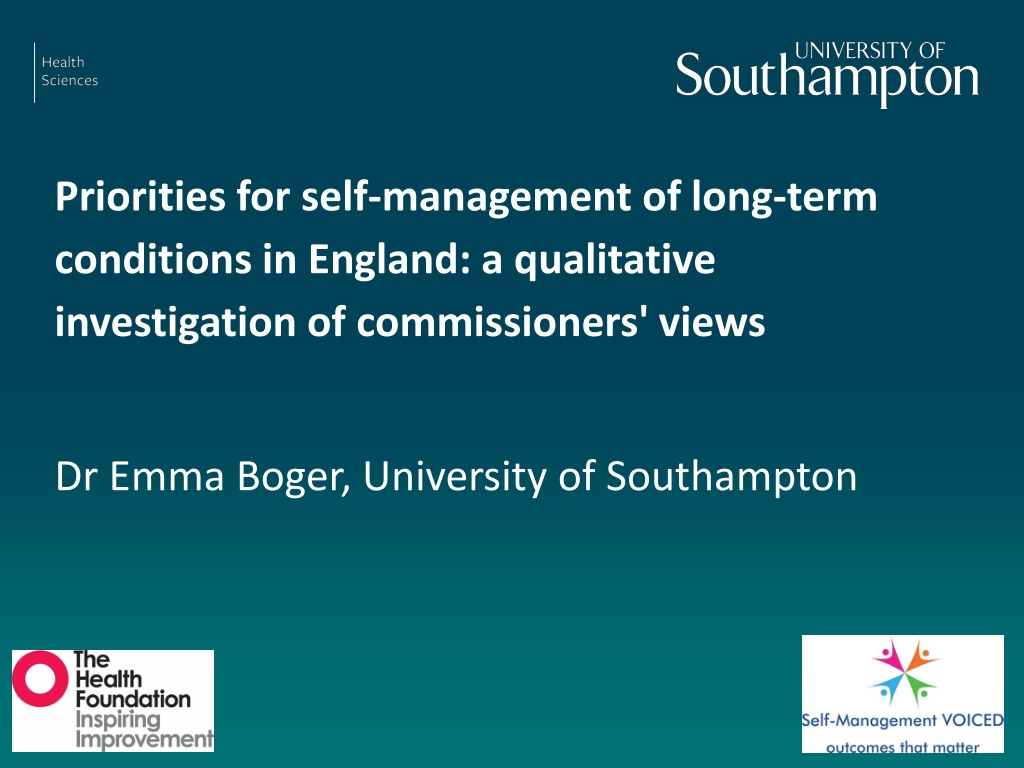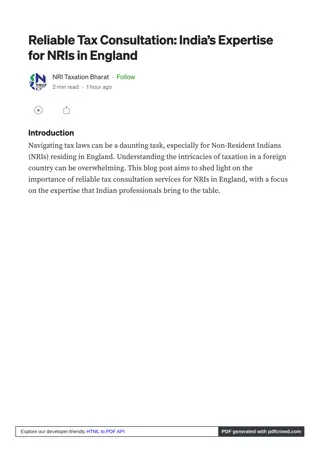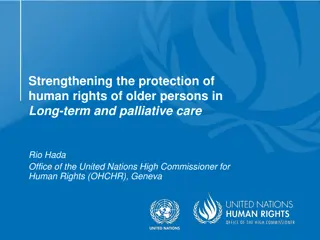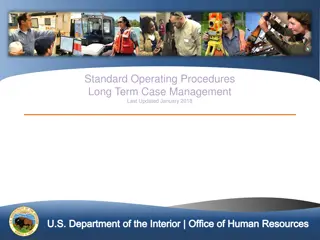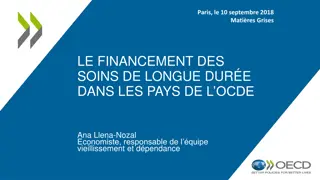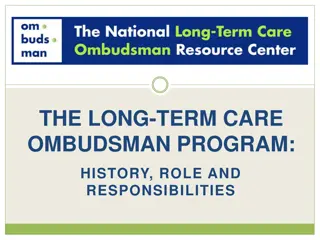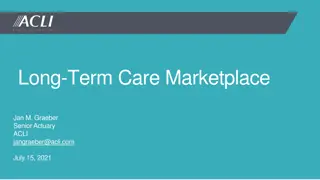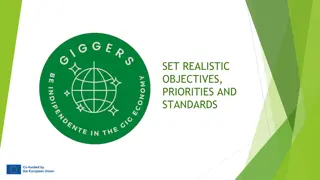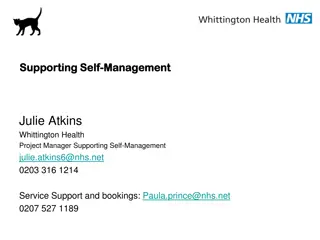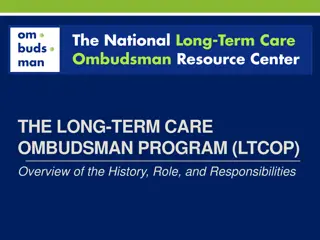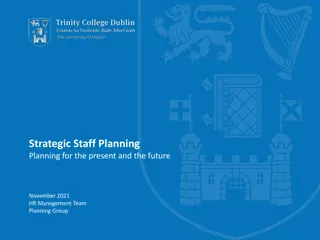Prioritizing Self-Management of Long-Term Conditions in England
Qualitative investigation into NHS commissioners' perspectives on self-management of LTCs reveals important outcomes and priorities. The study explores how commissioners conceptualize self-management, identify valued outcomes, and assess support services to enhance patient care. Through semi-structured interviews and thematic analysis, key core outcomes such as reduced resource utilization, patient-centered services, and enhanced patient knowledge emerge as crucial in shaping effective self-management strategies.
Download Presentation

Please find below an Image/Link to download the presentation.
The content on the website is provided AS IS for your information and personal use only. It may not be sold, licensed, or shared on other websites without obtaining consent from the author. Download presentation by click this link. If you encounter any issues during the download, it is possible that the publisher has removed the file from their server.
E N D
Presentation Transcript
Priorities for self-management of long-term conditions in England: a qualitative investigation of commissioners' views Dr Emma Boger, University of Southampton
SM VOICED Self-Management Valued Outcomes of Importance: ConsEnsus and Difference Systematic review conducted (Boger et al, ) Qualitative investigation - conducted Delphi Study ongoing until December 2015
Commissioning is the process of planning, agreeing and monitoring health services to deliver better quality, outcomes and value for money (NHS England)
Aims To understand how NHS commissioners conceptualise and prioritise self-management of LTCs To identify which outcomes of self-management support are valued
Methods Semi-structured interviews & deductive thematic analysis Understanding of SM Understanding of the skills and attributes of a good SM SM support commissioned or planned in CCG How this support was/is evaluated The purpose/desired aims of the support Impact of SM on the NHS/commissioning climate
Commissioners Recruited from different levels of commissioning across England Had a role in either: 1. Commissioning support for Self-management 2. Commissioning support for LTCs 3. Role in setting policy direction for commissioning
Results Total Gender Structure M F CCG CSU NHS England Regional NHS England National 23 9 14 18 1 1 3
Six core outcomes identified Reduced health care resource utilisation Services that meet patient s needs Increased condition knowledge Skilled patients Skilled Health professionals Increased patient responsibility for health
Reduced health care resource utilisation we don t have a limitless budget and it s making sure that we target it appropriately (comm 02, CCG) I believe that if we can get people to take a more proactive role in their care, that actually there will be a lot of efficiency savings for the health service . (comm 21, CCG) the economic impact looking at the emergency admission rate, bed days, [impact on] ambulatory care services, emergency admissions, emergency readmissions, rehabilitation, residential home .. (comm 11, NHS England national)
Services that meet patients needs Quality is defined as having three components; safe, effective care which provides positive patient experience and meets needs . (comm 11, NHS England National) people seek their treatment from GPs primarily, whereas I think if it was more patient driven and people were more in charge of their own care, they would look to more varied treatment and community care providers... If you wanted to go to a self-help group or you wanted to go to an exercise class, all these things are going to be more likely to be provided in community settings rather than in the GP surgery (comm 09, CSU) Well because of the personalisation [agenda] now outcomes are difficult to measure because they re personalised. So if somebody says, I want to go fishing, well how do you measure that [or] if somebody wants to start knitting? You can t . (comm 10, CSU )
Increased condition knowledge [good SMers] are knowledgeable around a range of different areas, not just about the disease but about the service, about medication, about a span of, if you like, technical things. They are knowledgeable about what they want and what they re trying to achieve (comm 04, CCG) we have feedback [from patients] It seems crazy that the GP gets something and I don t get anything about my own condition (comm 13, NHS England, regional)
Skilled patients It s [SM] about having an empowered and an informed patient, who knows how to keep themselves healthy and can have an informed dialog with their GP . (comm 14, CCG) The best outcome for me is back to where I started in terms of Why are we doing it? which is that there s an increase in terms of people feeling more supported and confident to manage their condition (comm 17, CCG) More activated people are much better able to manage their own health at home outside of the system they re better prepared for the consultations, they make better use of their interactions with the NHS which in effect reduces the number of episodes that they have to come into contact with the NHS . (comm 04, NHS England National)
Skilled health professionals the skills that we are trying to impart [to HCP] are very much the skills around how you can actively listen to people, so that you can support them to identify their own personal outcomes and personal needs, that will then enable them to manage their condition more effectively (comm 21, CCG) we need to do some training around self-management with health professionals about how they should be framing it.... in terms of if we re empowering the individuals to take control then there s a power shift needs to happen, and so the health professional needs to recognise that they ll need to give away some of the control they think they ve got . (Comm 10, CSU)
Increased patient responsibility for health If you ve got a healthier population that are making good life style choices, you know we re exercising we re not filling our blooming system up with loads of fat, that is going to make a difference on outcomes . (comm 08, NHS England regional) I think we have gone far too much down the path of the nanny state, where everything is done for people, and I think we are trying to bring it back to a point where patients have to realise that actually ultimately they are the ones that control their lives (comm 20, CCG) we have increasing numbers of people with long-term conditions that actually if we don t want people to be more take a more active role in their own self-care and their own self-management, that actually the NHS is not going to continue to resource the services in the way they have (comm 21, CCG)
Summary Commissioners desire SM services that meet people s needs and reduce health care use Effective SM services are considered achievable if both HCPs and pts develop skills AND pt. responsibility is enhanced Commissioners focus upon process measures to demonstrate effectiveness, in the absence of alternatives
Next steps National Delphi survey Calculation of which individual outcomes have most priority for stakeholders
Self-Management VOICED Study Website: www.southampton.ac.uk/smvoiced Twitter: @SMVOICED Email: E.J.boger@soton.ac.uk
